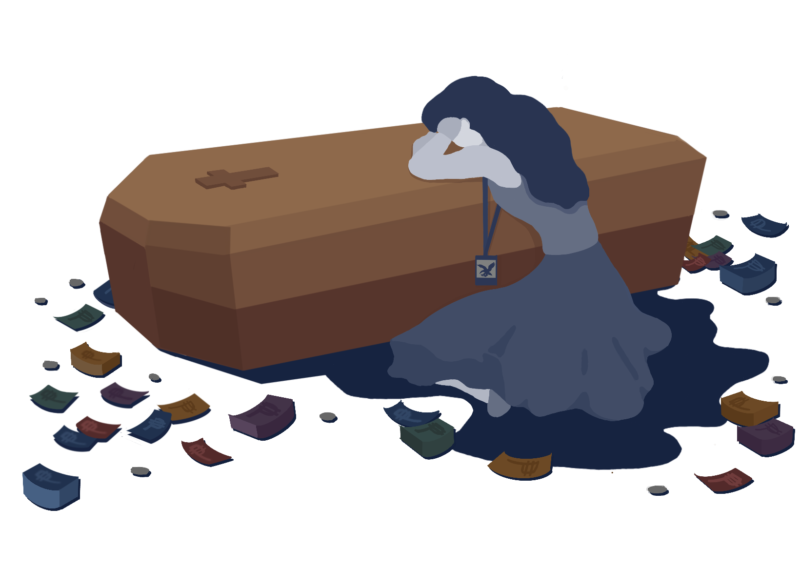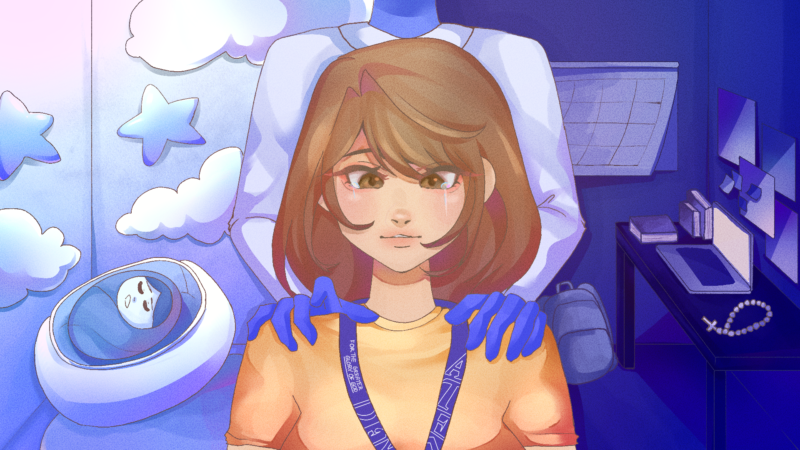Imagine life reduced to its core—its fleshy pulp of peculiarities completely eliminated. It’s that kind of reality yearned for by an exasperated world, that fraction of humanity fed up with life’s imperfections.
It’s life without such dilemmas as whether or not to nod in acknowledgement to a mere acquaintance walking down the street, life without the burden to keep secrets from people, life without the pressure to act a certain way around certain friends.
It’s life made simpler, where everybody’s in their Sunday best all the time, unrelenting with their calculated smiles.
Such a life sounds eerie and alien, but in truth, it’s not as unfamiliar as you’d think. Almost definitely, you spend at least a few hours a day in this utopia: Facebook, man’s efforts towards a ‘perfect world,’ a virtual realm bent on eradicating reality’s imperfections.
And for Jean Baudrillard, how mankind got to this utopia is the ‘perfect crime’—the destruction of reality as a consequence of the contemporary world’s virtualization. In fact, for the late French philosopher, the world we now live in is merely that of appearance. It is an illusion, feeding off the remnants of a bygone reality that died alongside its imperfections, when the latter was killed in pursuit of a perfect world.
Yes, the philosophical reckoning must make it obvious enough: Facebook has much importance and relevance to our age.
The local gang
Facebook is the world’s largest social networking site, with a user count of around half a billion people. Industry analysts predict that if the site continues to perform strongly, it will certainly be the first service of its kind to have ‘connected’ a billion people in the planet.
United States-based industry tracker comScore notes that the Philippines tops the list of countries with the highest Facebook usage in the Asia-Pacific region. The company is estimated to reach around 84.5% of the age-15-and-older demographic among Filipinos who access the internet from home and work.
Political Science Lecturer Arjan Aguirre explains that, just like most people on Facebook, Filipinos use the site out of a desire to expand personal networks. “You add people [as Facebook contacts] if you have a common denominator—ranging from [having a mutual] friend, [going to the] same school, [or to having a similar] personal belief,” he says.
Philosophy Instructor Marc Oliver Pasco also explains that Facebook has a strong bandwagon appeal to Filipinos. “It is highly rooted in culture,” he says. “Filipinos are not individualistic people. We frown upon people who keep [information] to themselves.”
Perfecting reality
In his book The Perfect Crime, Baudrillard argues that humanity’s drive towards virtual reality eliminates life’s imperfections—tantamount to eliminating reality itself. Understanding Facebook as a form of such virtual reality betrays the prevalence of eliminating—or at least, masking—life’s imperfections in the social networking site.
For example, a central element to the Facebook experience is the ubiquity of carefully selected profile pictures specifically chosen to portray the account owner in a preferred light. Similarly, there is also an abundance of airbrushed, strategically cropped, or artificially ‘enhanced’ photos, again to give off a carefully selected impression of the person portrayed.
Apart from profile pictures, numerous other features in Facebook can also be exploited to create that perfect virtual identity meant to capture who a person is in ones and zeros. With just a click, the Facebook promise of an online identity is fulfilled: users find out about each other based on the music, movies, or internet memes they ‘liked,’ on the number of contacts they have, or on the photos they are tagged in.
Pasco, however, is saddened by this fact. “It’s like going back to childhood, [when] you always needed ‘likes,’ the approval of others.”
“[In Facebook], we take pride in showing and celebrating ourselves,” he says. “We can be superstars. We like people looking into our photos and posts.”
He adds that one can even strategically manipulate Facebook exposure, for whatever the person’s purposes are.
“Profile pictures are taken from a certain angle. You filter that,” Pasco says. “In everyday life, people see you in all angles.”
On the same note, Aguirre says, “Facebook acts as a corrective factor. [It] makes up for the things that you do not have in real life, such as your number of friends or how people accept you.”
Pasco and Aguirre’s opinions mirror Baudrillard’s idea that in virtual reality, everything becomes signs, images or displays of mere appearance. The photos, the friend count, the ‘likes’—they all function as illusions that merely hint at reality.
The vainglorious ‘self’
Apart from the danger of virtual identities superseding real ones—which engenders the risk of alienation from the real world—Pasco is also worried about the risk of self-alienation that Facebook poses.
“What if the time comes that you do not know your identity anymore?” he asks.
Here, Pasco borrows Baudrillard’s view on hyperreality—the difficulty of distinguishing between the real and the fantastical—as the “pornography of information.”
According to Pasco, Baudrillard explains that pornography shows images of the sex act that a person having sex can’t see from his or her point-of-view. In order to satiate the schizophrenic desire to see one’s self in a sex act as portrayed in pornography, one may end up filming one’s self and watching the video.
Pasco implies clear parallelisms between watching one’s “self” in a self-made pornographic film and reading about one’s “self” in a self-made Facebook profile page.
“In Facebook, how many times did you look at your wall?” Pasco asks. “How many times have you become an egotistic schizophrenic?”
No room for privacy
Facebook has been mired by various criticisms regarding a lot of its corporate policies, especially on privacy. Through close analysis, though, it seems that even these more practical concerns raised against Facebook are intimately tied to its virtual nature.
Sarah*, a regular Facebook user for two years now, at one point regretted signing up for the service after finding out about a user posing as her through a fake account—an apparent effort to defame her.
Sarah was devastated to find out that the poseur posted suggestive and embarrassing messages and photos in the fake account, including sexual advances towards male Facebook users and photos fallaciously suggesting promiscuous behavior on the part of Sarah.
“I felt undignified when I saw the comments,” she shares.
Luis’* story is different. Also a regular Facebook user, he admits to stalking his crushes online.
“I do download [my crushes’ pictures] and keep them for my own,” he says. “Sometimes, I share them with friends online.”
The two anecdotes demonstrate Facebook’s weaknesses in terms of privacy protection, and the site’s clear tendency to inadvertently play the role of a stalker coddler.
However, these disagreeable aspects of Facebook seem to be the inevitable side effects of the elimination of life’s “imperfections” in pursuit of virtualization. For example, when the real-life limitations to social interaction were eliminated in the virtual world—such as, say, a 30-minute cab ride, or a door with a lock, or anything else that separates people—privacy seems to have been eliminated in the virtual world, too.
Moreover, when the sometimes awkward face-to-face conversations with semi-strangers in real life were done away with on Facebook—equalizing one’s interaction with a half-known contact to the same person’s interaction with a family member—degrees of personal closeness seem to have been eradicated too. This gave stalkers just as much access to someone’s virtual identity on Facebook as, say, the person’s best friend, just as long as the stalker gets to be approved as a contact.
Facebook to the future
Whether mankind is really shifting from reality to virtual reality will probably remain an open question. For all humanity knows, such a shift may drag on for centuries, or may not even happen at all.
But at least for the moment, it is clear as glass that virtual reality is a definitive aspect of the contemporary human condition. In fact, it is worth noting that Baudrillard, as early as the late 1990s, has already declared reality to have been eliminated, supplanted by a world of mere appearances.
In other words, Facebook may very well be our future.
With reports from Luther B. Aquino, Emmanuel D. Delocado, and Judito C. Tadeo
*Names have been withheld upon request.
Virtual Empires
Online social media has impacted the lives of billions of people around the world in various ways. Considered essential to the lives of many, social networking sites are making the virtual world a much smaller place.
Facebook – 530,000,000 users
Twitter – 190,000,000 users
My Space – 120,000,000 users
Friendster – 115,000,000 users
Multiply – 20,000,000 users
Tumblr – 10,000,000 users












